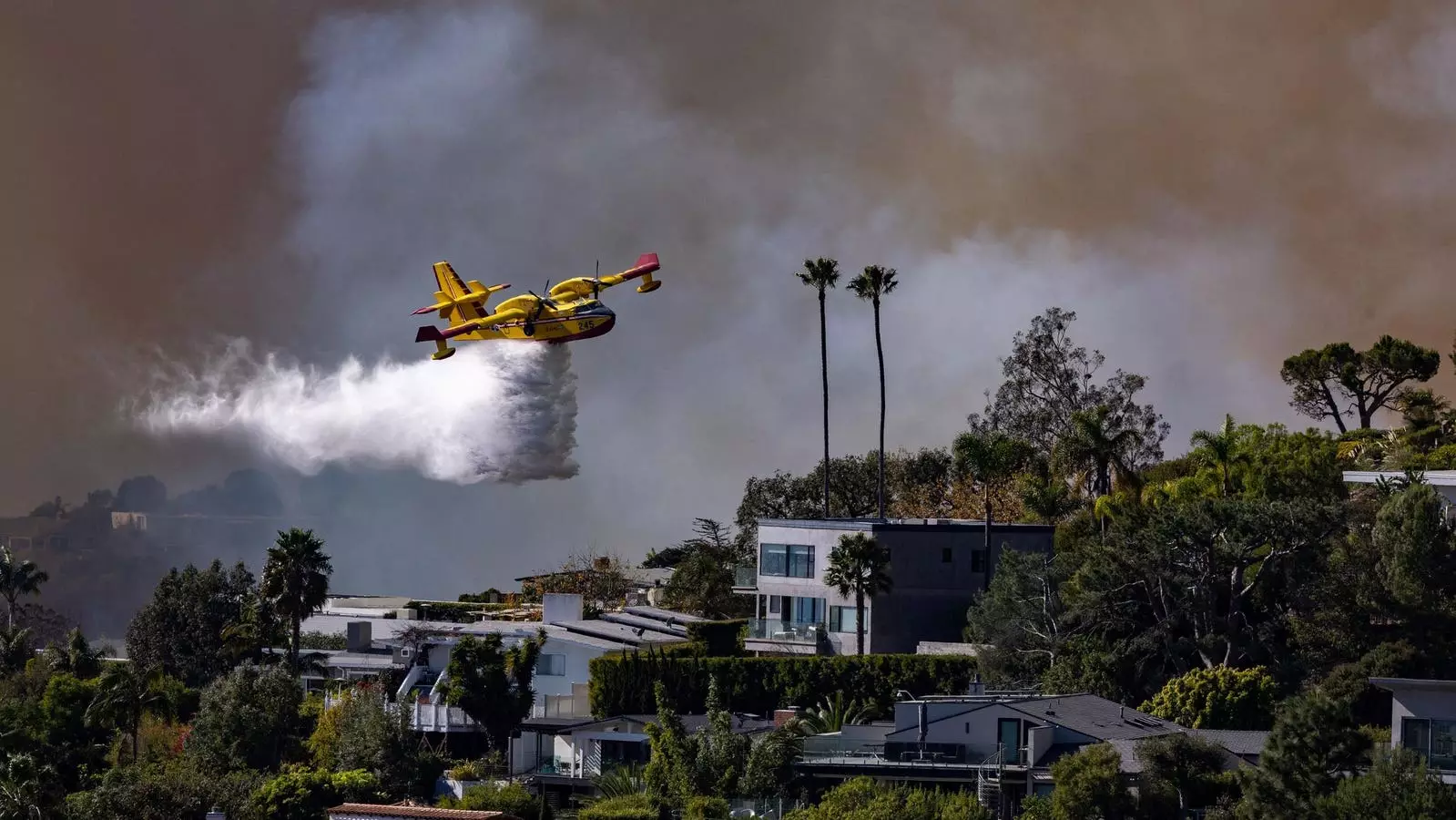As California grapples with devastating wildfires that consume thousands of acres, attention has turned towards influential figures in the state—specifically, Stewart and Lynda Resnick of the Wonderful Company. These business moguls often find themselves at the center of discussions surrounding water politics in California, leading to misapprehensions about their role in the ongoing crisis. Social media discussions have proliferated, but it’s crucial to dissect these narratives to understand the true complexities at play. While the Resnicks possess significant influence in the state’s water management sphere, they are not to blame for the fire hydrants in areas like Pacific Palisades running dry during these emergencies.
It is important to note that the problem is not a shortage of water supply; rather, it is the infrastructure that fails to support effective firefighting efforts. The misconception that the fires are spreading due to this water shortage needs to be corrected, as recent reports indicate that reservoirs in Los Angeles are at capacity. Instead, a host of infrastructural deficiencies exists that impede effective firefighting operations.
The discourse also leads us to a significant pivot in our understanding of climate change. Recent interviews with experts have revealed an alarming trend in how the nation addresses this pressing issue. In the past, much of the focus has veered towards efforts aimed at mitigating climate change—namely, reducing greenhouse gas emissions. However, this is only one part of a broader strategy; there is an equally critical need for adaptation strategies that account for the immediate ramifications of climate change on communities, infrastructure, and safety measures.
Dr. Mark Gold, the director of Water Scarcity Solutions at the Natural Resources Defense Council, emphasizes this point eloquently, remarking on the phenomenon of “climate whiplash” affecting the region. This term encapsulates the rapid and extreme fluctuations in weather patterns that have become increasingly common, underscoring the urgency to adapt our systems—especially when it comes to maintaining water security, enhancing wildfire response efforts, and fortifying coastal communities against rising sea levels.
The issue of inadequate fire response infrastructure is far-reaching. The complexities of managing water resources during a wildfire inevitably require thorough examination and modernization of existing systems. Innovative solutions are paramount, and the data shows that simply replenishing water supplies is insufficient if the infrastructure fails at critical moments.
The disparity between the available water resources and the operational capabilities of emergency services necessitates a multi-pronged approach. Investing in infrastructure improvements should include extensive retrofitting of existing systems, strategic development of new facilities, and enhanced training programs for emergency responders. A reallocated focus on the integration of climate adaptation measures will better prepare urban landscapes against wildfires and other climatic threats.
In light of the ongoing crisis, the Wonderful Company has pledged $10 million to Los Angeles fire relief efforts, including donations to both the Los Angeles Fire Department Foundation and the Police Foundation. This move not only reflects corporate social responsibility but also highlights the importance of community engagement during crises.
While financial contributions are vital, they must be coupled with systemic change and accountability on all fronts. Corporations, community members, and policymakers must work together to devise sustainable long-term strategies that enhance resilience against natural disasters, ultimately benefiting the ecosystems and communities they impact.
Ultimately, acknowledgement of misperceptions surrounding California’s water management and wildfire response is critical. As climate change continues to reshape our realities, stakeholders across various sectors must unify their efforts towards both mitigation and adaptation. Fostering a culture of shared responsibility, innovation, and awareness will be crucial for the state, ensuring that it is not merely reacting to crises but instead orchestrating proactive strategies to safeguard the future.


Leave a Reply